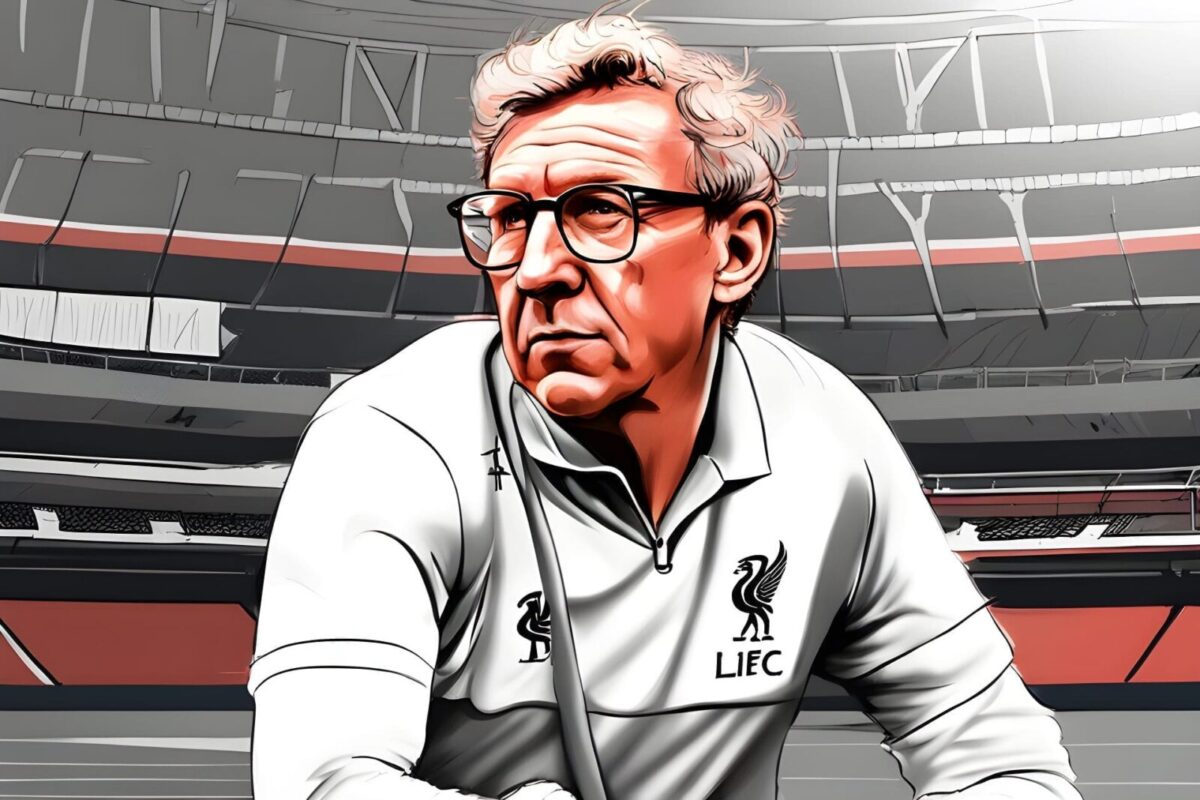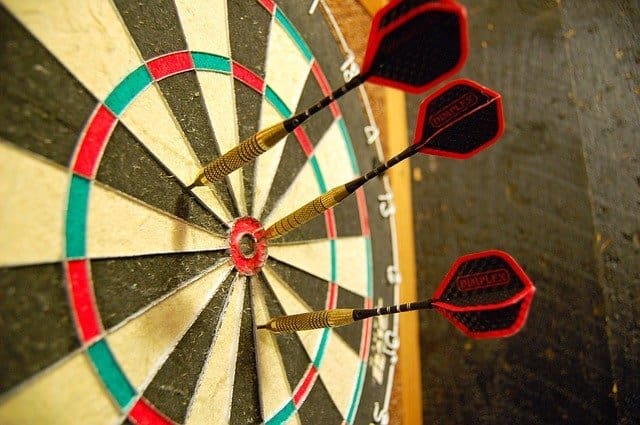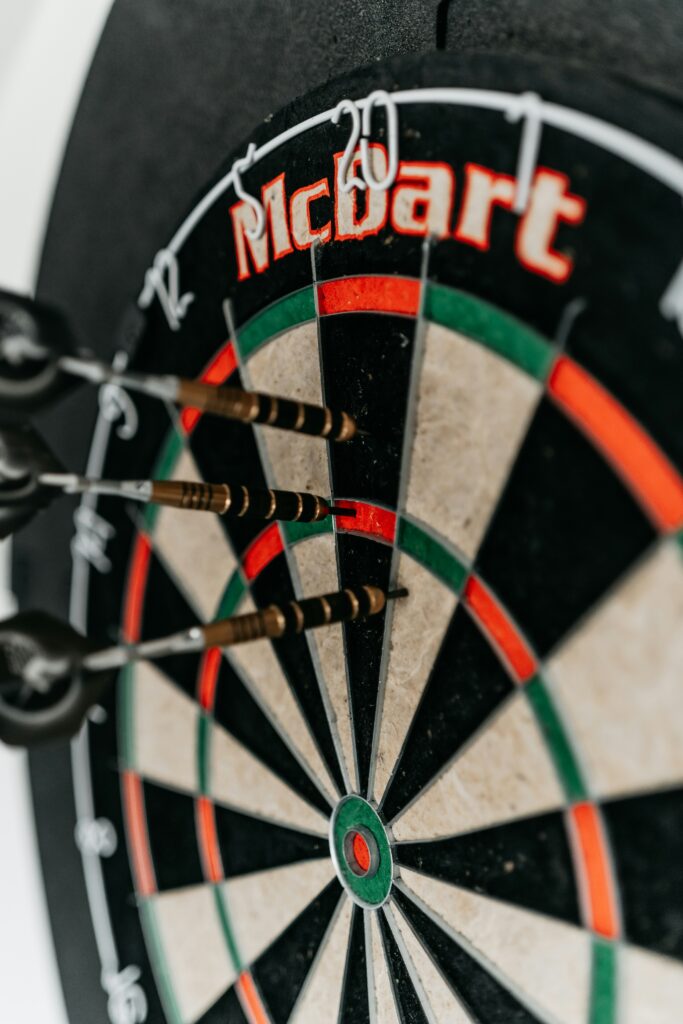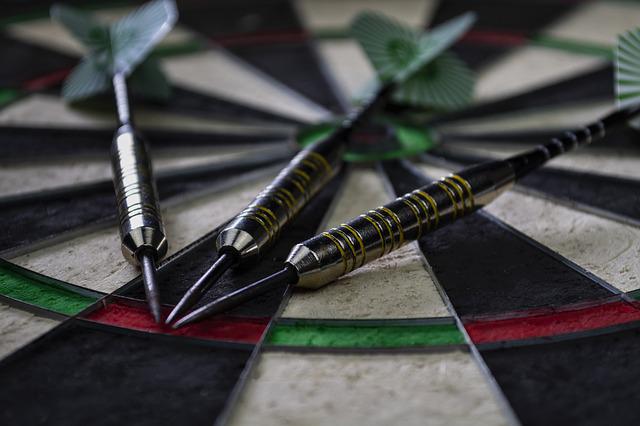

There is no doubt about it. Darts is a quirky game. Yet, it is also wonderful, exciting, enjoyable, dramatic, tragic and enigmatic.
It encapsulates everything about the human condition. Yet its legends of the game, rules and requirements make it as accessible a sport as any, for any person of any creed, nationality, size, age or shape.
The sport has an incredible, unusual and often volatile history. From regal beginnings to the game of the working classes. From popularity, to disinterest, and back to massive popularity once again.
So, if you’ve enjoyed the darts on TV or the darts betting coverage at bet365 Sport and want to know more about the game, read on as we bring you a complete understanding of the game. From its historic and noble beginnings right up to the modern day!

Bet365 Review » Min Deposit: £5 » Expiry: 30 days » Min Odds: 1/5 (1.20)
You have to go back to medieval times to uncover the roots of Darts. Back then, it was a pastime adopted by soldiers of the realm. They would throw spearheads at upturned barrels. Back then, it was seen a less of a game, more of a training regime for soldiers about to head into battle.
Soon, soldiers started using different weapons such as bows and arrows and different targets, eventually moving on to tree trunks, which were cut in half, and the annual growth rings used to judge how accurate a throw was.

In 17th-century France, a similar game was developed using a cork target and a point that used feathers to allow it to fly through the air. However, the game was still a long way from the darts we know today.
If the origin point of modern darts can be traced back to one moment in time, that came in the late 1880s. Bury resident Brian Gamlin devised a way to turn darts into a game.
His brainwave was to organise the board into numbered segments from 1-20, with a bullseye at the heart of the board. A system which remains in place to the present day.
Darts began to grow in popularity in England at the start of the 20th century. Public houses began to offer the game, but it was a controversial move, with some localities banning the game. Despite Mr Gamlin’s design, many regions had their own darts boards and rules. Both those issues changed following the end of the Second World War.
During the war, darts played a key role for soldiers, who introduced their allies from the likes of America, Australia and elsewhere to the game.
Following the war the National Darts Association of Great Britain was set up and it started to organise a standardised game at local and national coverage.

In the formative years of darts, there was one main tournament. The News of the World Championship, which was first contested in 1927. This attracted many thousands of entrants in its prime. In 1938/39, over 280,000 people entered the tournament.
After a break enforced by the Second World War, the News of the World Championship returned but over the next 25 years or so, the game grew in popularity as a sport played mainly in pubs or working mens clubs.
With the NDA of Great Britain loath to expand its operations, Olly Croft formed the British Darts Organisation (BDO). His aim was to bring darts to the mainstream by running tournaments shown on TV and to take over the governance of the sport at the local and national levels.
The BDO attracted sponsors, and TV companies soon began to show darts tournaments regularly. In 1978, a landmark for darts was reached when the BDO hosted the first-ever World Darts Championship.
Leighton Rees of Wales was the first-ever World Champion, defeating John Lowe in the final, earning a £3,000 top prize.
The 1970s to mid/late 1980s were the first golden era of darts. The game drew large viewing figures on TV and attracted many sponsors, allowing for more televised tournaments each year. Events such as the World Masters, World Matchplay and several open events held in different countries.
That happy state of affairs did not last. By the late 1980s and into the 1990s, darts began to lose its appeal. Viewing figures plummeted and sponsors withdrew their support. The number of TV tournaments dwindled away to just one and top players, concerned for their livelihood, decided to take action.
They formed the World Darts Council. They wanted more tournaments on TV, better prize money, and the appointment of a PR consultant to improve the game’s image and reignite people’s interest.
By 1993, the situation had not improved and after the 1993 World Championships, the 19 players issued a statement stating that they would only compete in 1994, if the WDC were to organise and run it. The BDO banned those 19 rebels from all BDO tournaments.
A lengthy legal battle followed, which saw the BDO forced to accept the WDC’s legitimacy, but the WDC had to change its name to the Professional Darts Corporation (PDC).
From 1994 onwards, darts was split, with the PDC running their own events under the guidance of Barry Hearn and with support from sponsors such as Sky Sports, while the BDO continued to run its own already-established events.
The BDO/PDC split defined the modern era of darts. However, it was the PDC that was winning the battle. It attracted the top former BDO players and soon, its World Championship, greater number of tournaments, better prize money and better quality players began to attract BDO players who ‘defected’ to the PDC.
Darts players effectively could become full-time professionals with the PDC, while with the BDO, many were still effectively amateurs.
Eventually, the PDC’s dominance saw almost every top-class player move to that organisation, leaving the BDO’s tournaments a very poor second.
The culmination came in 2020, when the BDO was wound up after sponsors and ticket sales plummeted. This meant they could not pay the 2020 winner the promised amount in winnings, offering him just 15% of the original stated amount.
In contrast, from its beginnings in 1994, the PDC has just continued to grow stronger, more popular and wealthier.
The full list of BDO World Champions (from 1978 to 2020)
The full list of PDC World Champions (from 1994 to 2025)
We compiled an article a while back listing the ten best Darts Players Ever. You can get more detail following the link but our list was as follows: –
Darts is famous for some strange terms used by commentators and within the game. Here’s a list of some of the more unusual ones and what they mean.
Legendary commentator Sid Waddell, after whom the current PDC World Championship trophy was named, was famous for his darts quotations in commentary. All were delivered in a distinctive northeastern excitable drawl.
Some of his classic comments include:
“It couldn’t get more exciting now if Elvis walked in and ordered a chip butty.”
“If we’d have had Phil Taylor at Hastings against the Normans, they’d have gone home”
“He’s as happy as a hound-dog who’s won a year’s supply of Bonio”
“When Alexander of Macedonia was 33, he cried salt tears because there were no more worlds to conquer…Eric Bristow’s only 27.”
“He looks about as happy as a penguin in a microwave.”
“Look at the man go: it’s like trying to stop a water buffalo with a pea-shooter.”
“He’s perspiring like a pudding in a pot.”
“His eyes are bulging like the belly of a hungry chaffinch.”
“His face is sagging with tension.”
“That’s the greatest comeback since Lazarus.”
“There hasn’t been this much excitement since the Romans fed Christians to the Lions.”
“That was like throwing three pickled onions into a thimble.”
“It’s like trying to pin down a kangaroo on a trampoline.”
“He’s as cool as a prize marrow!”
“He’s about as predictable as a wasp on speed.”
“He’s sweating like a hippo in a power shower.”
Remember, you can enjoy darts betting on the wide range of darts tournaments held across the year at bet365 Sport.
That includes futures betting, pre-match betting and of course In Play betting when the action is in progress!
Updated 5th May 2025.
18+ Always remember to gamble responsibly. Check out bet365’s Safer Gambling page for more details or go to GambleAware.org for advice, tools and support.

All contents are ©
Bet365 Bonus Code, Sports, Casino and Poker Sign up offers and News

18+ Worried about your gambling? Gamcare - When the fun stops – STOP!